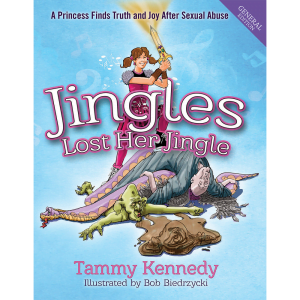It is common knowledge that sexual abuse causes insecurity, low self-esteem, feelings of excessive guilt, and deep shame. Humans want to be loved and valued. Abuse of any kind can cause feelings of self-hate, inferiority, and rage. When we devalue ourselves, our threshold for what we allow in a relationship diminishes.
I was willing to stay in a relationship with a family member who blamed me for the abuse, and often scolded me when I talked about it. My need for love was so intense that I put up with the emotional abuse. My low self-esteem caused me to believe I deserved it.
What does this have to do with domestic violence?
Having been sexually abused during childhood made me a higher risk candidate for being in abusive relationships. According to some specialists I spoke to, I also had an increased risk for substance abuse, unsafe sexual behavior, eating disorders, self-harm, and extremely low self-esteem. Would you know what to do if you suspect a friend is in an abusive relationship? Where would you go to find help?
Victims of sexual and physical abuse experience feelings of intense shame. According to statistics, 1 in every 3 teens in the U.S. is a victim of some abuse, whether physical, sexual, or emotional. And, only 33% of them have ever told anyone about the abuse because they blame themselves, feel embarrassed or are afraid. Sadly, some resort to suicide rather than seeking help. Domestic violence is a much worse and more common societal problem than people realize. As a child, I witnessed my mother being battered for six years. The domestic violence caused more fear and stress than the sexual abuse. The fights were loud, dangerous, unpredictable at times, and more frightening than I can express.
What constitutes abuse?
Abuse may be classified as physical, sexual, verbal, or emotional exploitation. It may manifest as a combination of these and in varying degrees. Emotional abuse is harder to recognize because there are no visible marks but can still have lifelong consequences. Even the threat of abuse is a form of mental abuse whereby the abuser seeks to gain absolute control. Coercive tactics can be intentionally used to obtain and maintain control over the behavior and emotions of an individual.
For example, John sees Sarah speaking to a male friend after school. He becomes enraged, berates her, and then refuses to talk to her for some time. Here, he is emotionally and verbally abusing her. Sadly, 1 in every 10 high school students have reported being physically hurt by a partner. The number of students who have been verbally and/or emotionally attacked is much higher. How does one know if they are in an abusive relationship? Shouldn’t it be obvious? For many reasons, it is not always clear.
For example, Heather’s father was a violent alcoholic, and she witnessed his hostility and physical abuse towards her mother for years before they divorced. Currently, her boyfriend gets angry quickly, screams at her when things don’t go as he plans, and randomly withholds affection without explanation. Heather does not consider him to be abusive. She proudly states, “He’s never laid a hand on me!” Because his behavior is familiar, Heather finds his treatment of her to be healthy.
Knowing some of the signs that a relationship might not be healthy is an excellent tool for all of us to understand. Remember, unhealthy relationships have consequences that may not end when the relationship is over. The less time the abuse lasts, the better.
Below are a few signs of an unhealthy relationship.
How does it relate to your own relationship or do you see these in a loved one?
- Anger is too easily expressed and is often excessive. This can be for the victim or the partner. As Heather began experiencing verbal and emotional abuse, her own rage began exploding at family members.
- Your child or friend is spending all their time with the partner only, and it is apparent the partner is very jealous of even a little time spent with others. Heather convinced herself that his isolating behavior was due to his deep love for her.
- You see a change in behaviors, activities and preferences. For example, Sarah once loved shopping at the mall with friends. Now that she is dating John, she states she does not like hanging out at the mall anymore. It is often the case in abusive relationships that the partner makes all the decisions and has complete control of activities and schedules.
- You observe your friend or child being especially guarded when they’re with their partner. This may mean they are being very careful to do or obey precisely what the partner expects in order to keep the peace.
- If they cringe or startle easily, there is a chance they are reacting to a perceived threat of intense anger or physical abuse. Something as simple as a car backfiring can cause a victim of childhood domestic violence to overreact as if being shot at.
- You see a change in their appetite, sleep patterns, grades, or ability to concentrate.
- Mood changes often.
If you suspect that your loved one is in an abusive relationship, make sure your tone of voice and the way you phrase questions are not accusatory. You do not want to increase the shame they may already feel.
According to statistics, Georgia has one of the highest rates of dating violence in the U.S. It is heartbreaking to know so many children and teens suffer in silence, believing there are no other options. Many are either too ashamed or too afraid to tell.
There are a plethora of websites offering lists of what to do to help survivors of abuse. From personal experience, what helped me the most, was for friends to provide unconditional love, and listen when I was ready to share. The most damaging reactions from friends were when someone preached, made judgments, scolded me, or got angry when I did not take their advice. Most times, we know what we “need” or “should” do. The hard part is gaining the strength and finding our internal resources to do what’s needed. It takes time!
Be willing to be patient.





Recent Comments